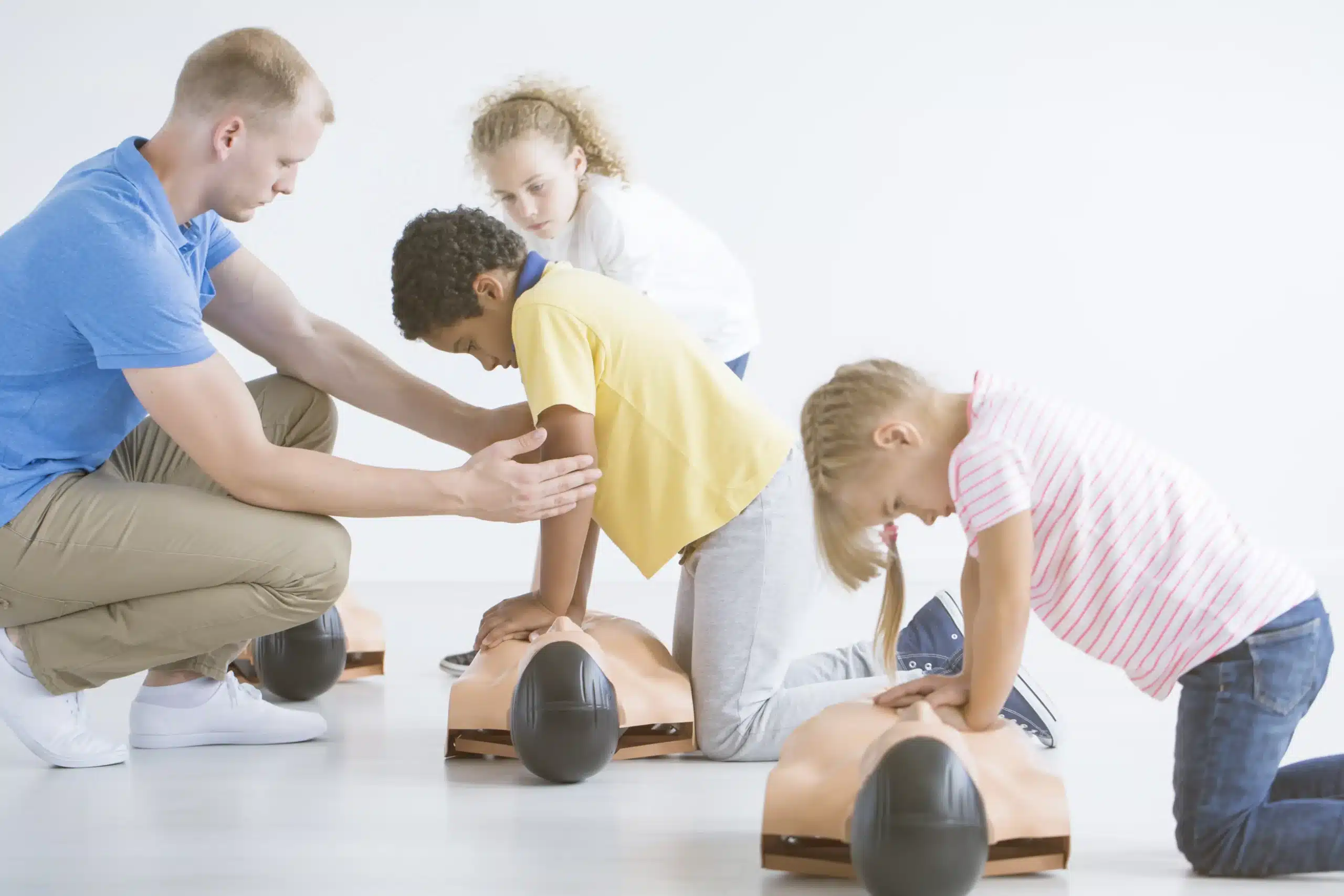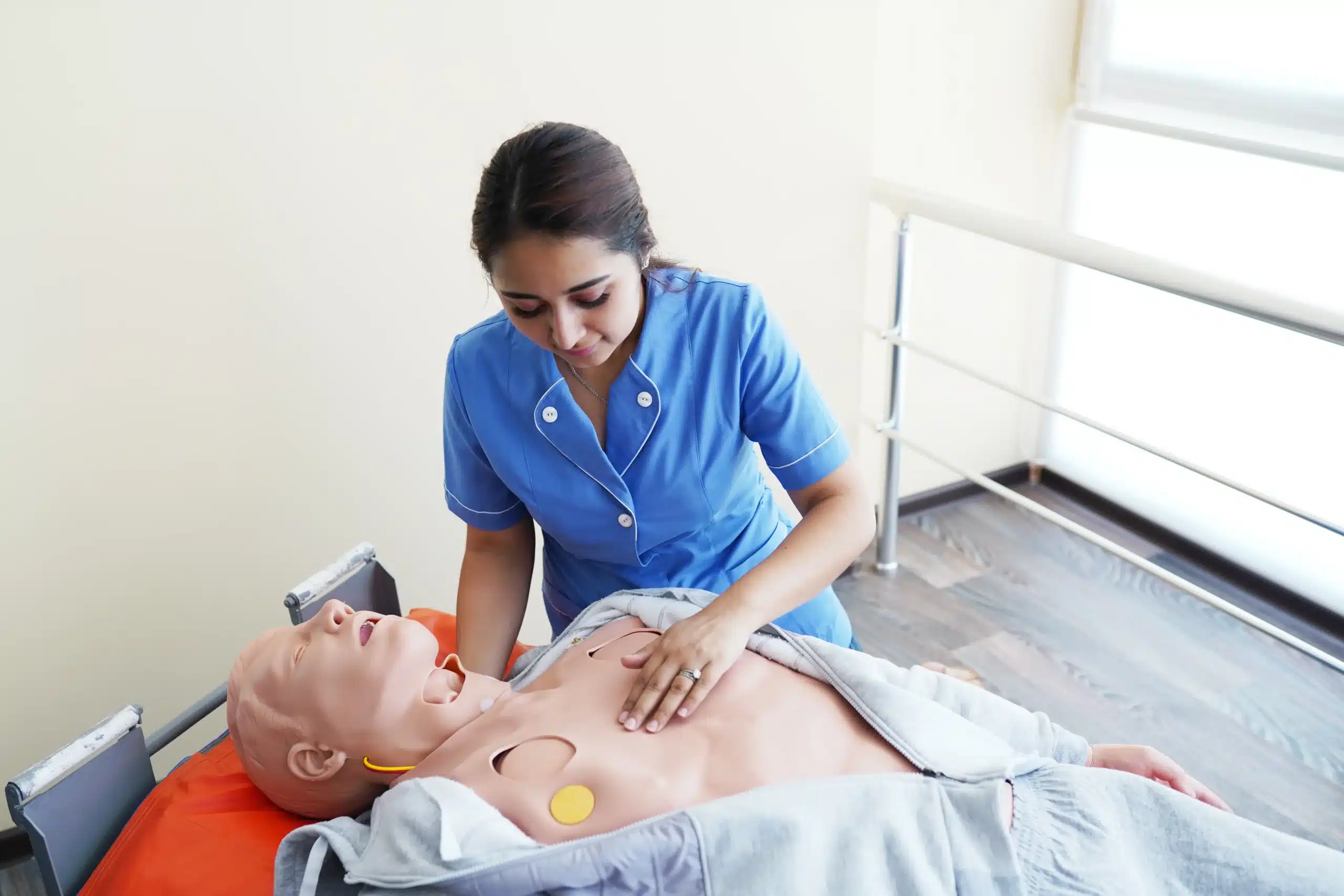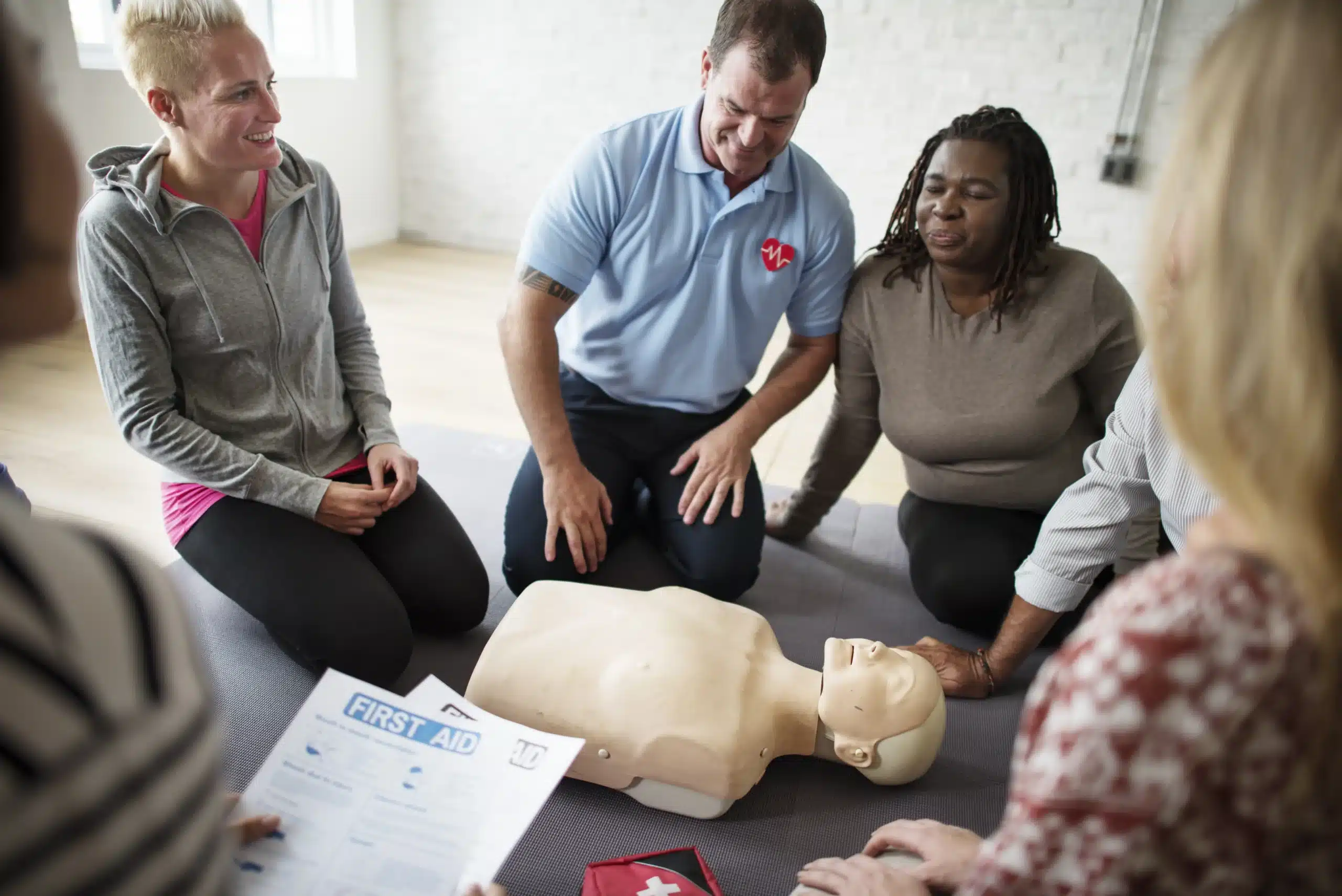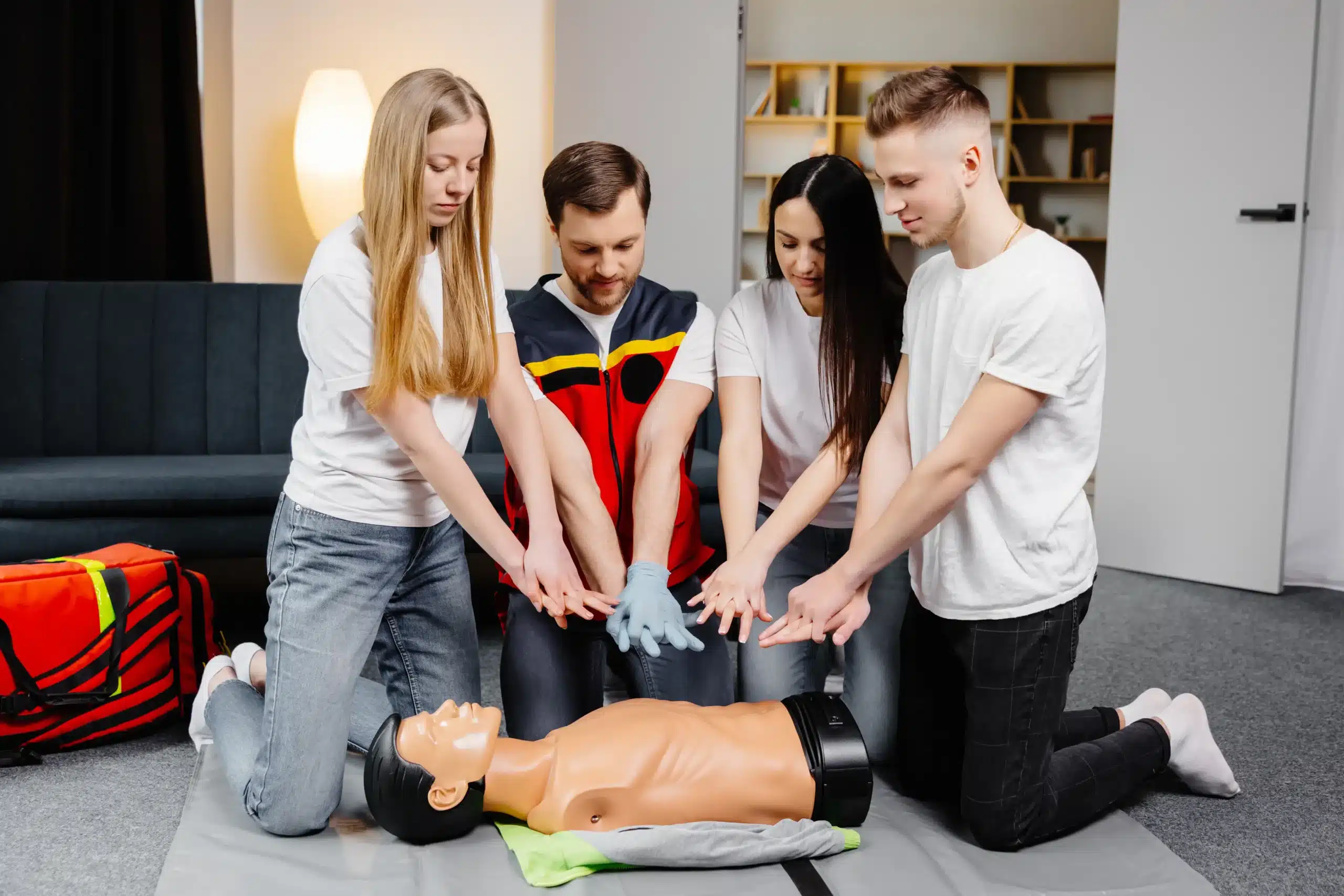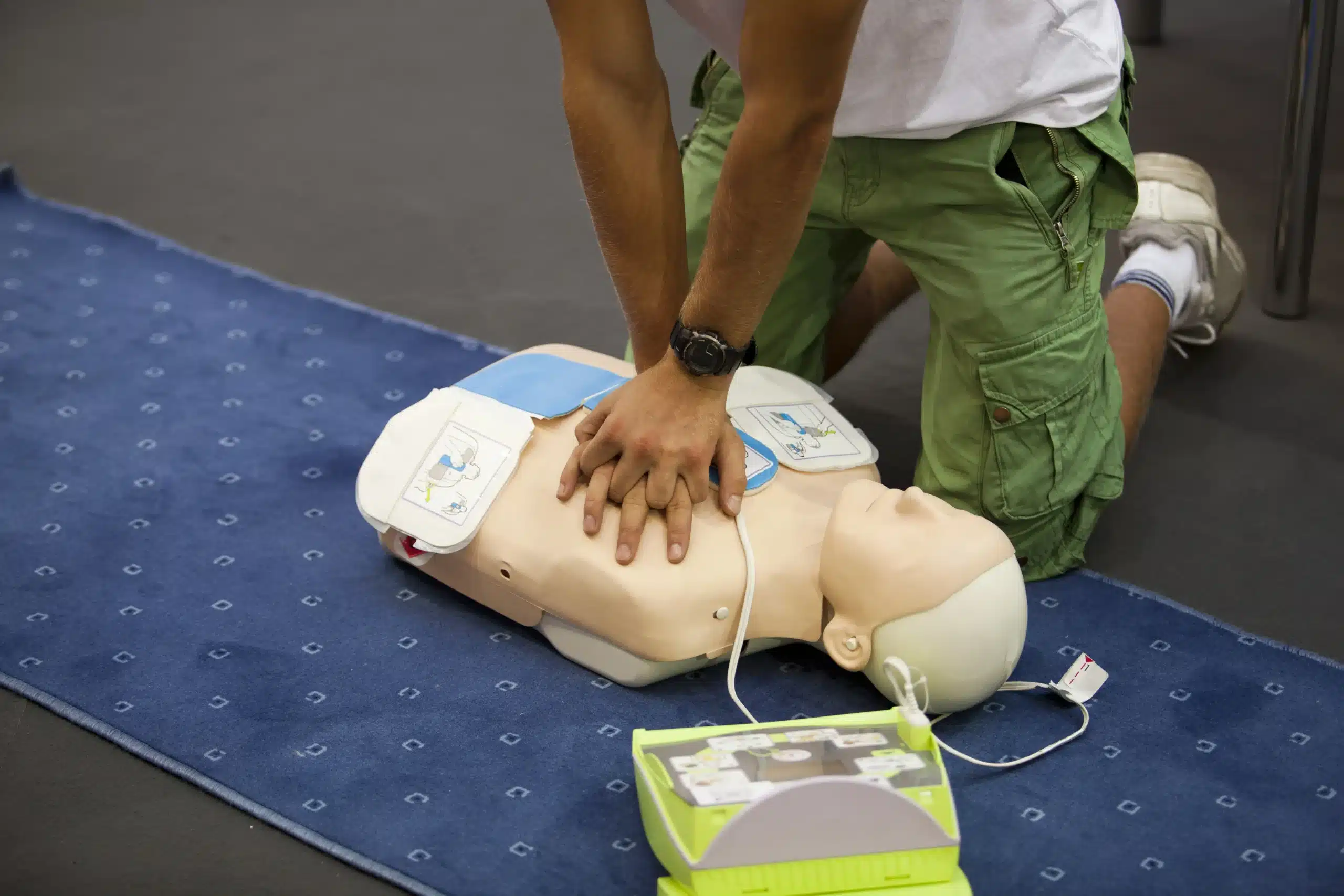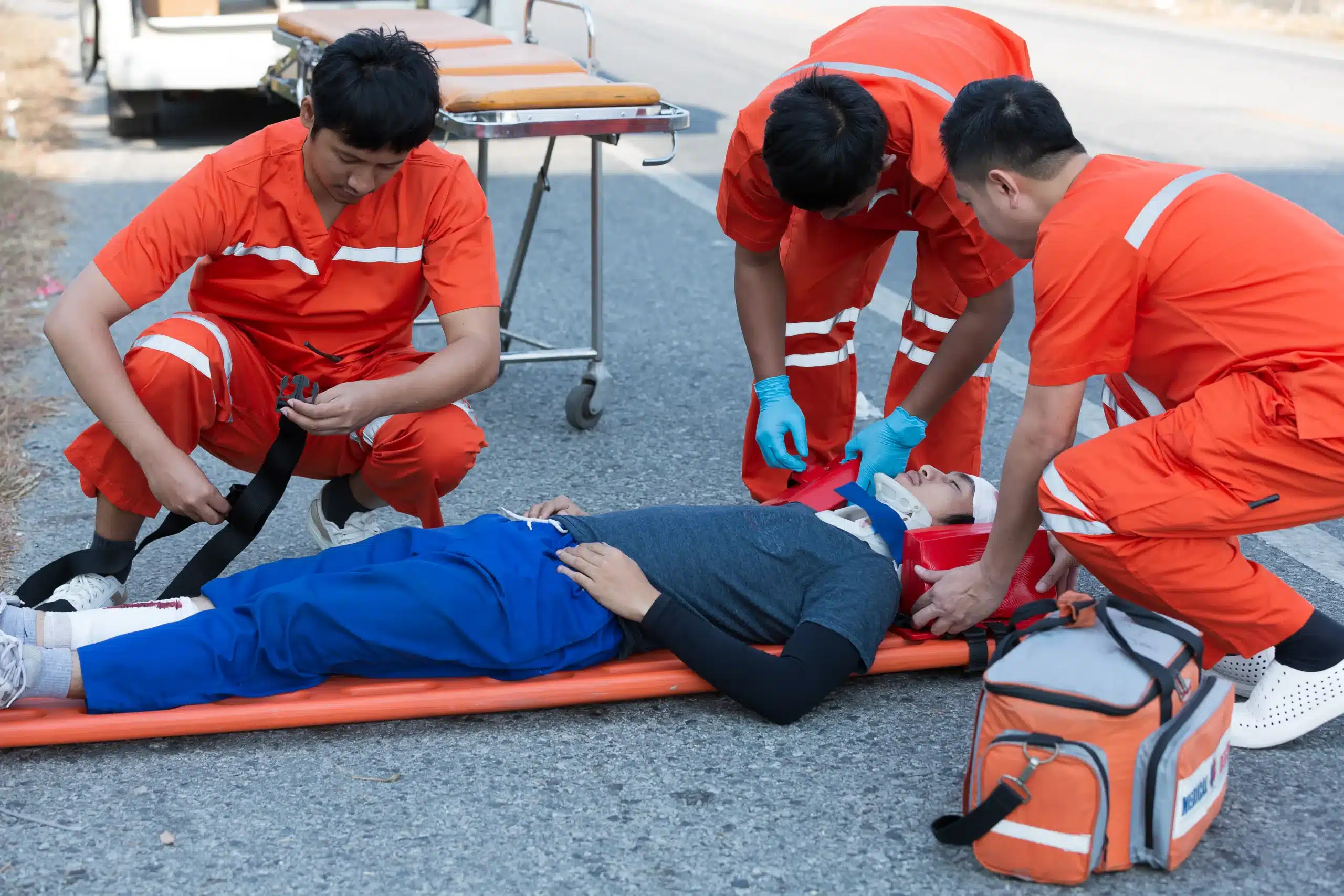As a parent, teacher, or healthcare professional, the safety and well-being of children are always top of mind. Knowing how to respond in a medical emergency can be the difference between life and death. Pediatric Advanced Life Support (PALS) certification equips you with the skills to handle critical situations involving infants and children. This specialized training goes beyond basic first aid and CPR, focusing on the unique physiological needs of young patients. If you’ve been searching for “PALS certification courses near me,” you’re in the right place. This guide will walk you through everything you need to know about PALS certification, from the core curriculum to finding the right course and maintaining your credentials.
Key Takeaways
- PALS is a specialized skill set: It goes beyond basic life support, giving you the tools to handle pediatric emergencies. This specialized training is crucial for healthcare providers working with infants and children.
- Choose your PALS course wisely: Think about your learning style and schedule when deciding between online, in-person, or blended learning. Make sure the course aligns with AHA guidelines and is accepted by your employer.
- Stay current with PALS: Renew your certification every two years and pursue continuing education to keep your skills sharp. This shows your commitment to providing the best care and staying on top of advancements in the field.
What is PALS Certification & Why is it Important?
Pediatric Advanced Life Support (PALS) certification is crucial for healthcare providers working with children in emergencies. Administered by the American Heart Association (AHA), PALS equips medical professionals with the skills to respond effectively to life-threatening situations involving infants and children. This specialized training goes beyond basic life support, focusing on the unique physiological and developmental needs of young patients. Holding a current PALS certification demonstrates a commitment to providing high-quality care and can significantly impact patient outcomes.
Key PALS Skills
The PALS course provides comprehensive training in critical skills. Participants learn to quickly assess a child’s condition, recognize signs of respiratory or cardiac distress, and administer appropriate interventions. The curriculum emphasizes a systematic approach to pediatric emergencies, covering areas such as airway management, vascular access, and medication administration. Beyond technical skills, PALS also hones soft skills like teamwork, communication, and critical thinking under pressure. These skills are essential for coordinating effective responses in dynamic and high-stakes medical environments. You can find more information on PALS training through the American Red Cross.
Why Healthcare Professionals Need PALS
PALS certification is vital for any healthcare professional who might encounter pediatric emergencies. This includes physicians, nurses, paramedics, respiratory therapists, and others working in emergency departments, intensive care units, and pediatric wards. Even professionals not exclusively focused on pediatrics benefit from PALS training, as they may encounter children in various healthcare settings. Having the skills to stabilize a child in a crisis can be critical until specialized pediatric care arrives. PALS certification not only enhances the quality of care but also instills confidence in healthcare providers, allowing them to act decisively and effectively. For those seeking PALS training in the Dublin, California area, Dublin CPR Classes offers convenient and affordable options.
Find PALS Certification Courses Near You
So, you’re ready to get your PALS certification—great! Now, where do you find a course? There are several convenient ways to locate PALS training near you.
Online Course Locators
Websites like ACLS.com offer entirely online PALS courses that allow you to learn at your own pace. This can be a great option if you prefer a flexible schedule or have limited time for in-person classes. The American Red Cross also provides PALS certification, and their site is a good starting point for finding both online and in-person options. Many online providers offer courses accepted nationwide, so you can get certified regardless of location.
Local Healthcare Institutions
Hospitals and clinics often host PALS certification courses for their staff and sometimes open these to the public. Check with hospitals in your area, like Stanford Health Care or John Muir Health, to see if they offer PALS training. You might also find courses through local ambulance services or fire departments.
Community Colleges and Universities
Many community colleges and universities offer healthcare certifications, including PALS. These courses are often taught by experienced instructors and can be a cost-effective way to get certified. Check with schools in your region, or consider contacting Dublin CPR Classes for PALS courses in the Dublin, Livermore, and San Ramon areas. They offer a range of American Heart Association courses and are known for their flexible scheduling and commitment to low prices.
Top PALS Certification Providers
Choosing the right PALS certification provider is crucial for high-quality training that meets industry standards. Several reputable organizations offer PALS certification courses, each with its own strengths.
American Heart Association
The American Heart Association (AHA) is a leader in CPR and emergency cardiovascular care. Their comprehensive, science-based PALS course equips healthcare providers with essential skills for pediatric emergencies. The AHA offers various course formats, including in-person and blended learning. All their PALS courses follow the same guidelines and result in the same AHA PALS Course Completion Card.
American Red Cross
The American Red Cross is another respected organization offering PALS certification. Their scientifically rigorous and educational PALS course emphasizes the latest guidelines and best practices in pediatric advanced life support. The Red Cross also offers various course formats.
National Safety Council
The National Safety Council (NSC) offers PALS training as part of its commitment to safety education. The NSC’s PALS courses meet the needs of healthcare providers and align with the latest AHA guidelines, ensuring up-to-date training.
ProMed Certifications
ProMed Certifications focuses on quality medical training. They emphasize choosing a PALS course created by medical professionals, aligned with AHA and ILCOR guidelines, for employer recognition. This reinforces the value of a reputable provider like ProMed.
HealthStream
HealthStream offers various certification courses, including PALS, focusing on affordability and accessibility. Their low price guarantee makes their PALS training attractive for budget-conscious individuals.
Dublin CPR Classes
Dublin CPR Classes is a woman-owned American Heart Association Training Center offering high-quality PALS certification. They prioritize convenient and affordable training in Dublin, CA, and nearby Livermore and San Ramon. This local focus makes training accessible for Tri-Valley healthcare professionals. Check out their group discounts and low price guarantee. They also offer other valuable courses like BLS and RQI. You can find more resources in their Northern CA CPR directory.
PALS Course Formats & Duration
PALS courses come in several formats to suit different learning styles and schedules. Understanding these options will help you choose the best fit.
In-Person Training
Traditional in-person PALS courses offer a structured learning environment with direct interaction with instructors and peers. These classroom-based courses typically follow a set schedule, covering all the required material through lectures, demonstrations, and hands-on practice. A full PALS course can take up to 17.25 hours, while an update course takes around 8.75 hours. This format is great for people who enjoy face-to-face learning and benefit from real-time feedback. Our Dublin CPR Classes location offers in-person training for students in Dublin, Livermore, and San Ramon. We also offer group discounts for in-person training.
Online & Blended Learning
If you need more flexibility, online and blended learning options are available. Blended learning combines online modules with in-person skills sessions. This lets students learn the theory at their own pace and then practice techniques in person. HeartCode PALS is a popular blended learning option with this convenient combination. This format is ideal for those juggling busy schedules or who prefer a more self-directed approach to learning.
Typical Course Length & Time Commitment
The time commitment for a PALS course depends on the format and your prior knowledge. In-person courses have set schedules, while online and blended learning offer more flexibility. The online portion of HeartCode PALS, for instance, is self-paced, so the total time depends on your experience. Blended and online courses usually take about eight hours to complete, though this can vary. Consider your learning style and available time when choosing a format. For a quick and convenient online certification option, check out our RQI classes through the American Heart Association. We offer a low price guarantee on all our courses.
PALS Certification: Costs & Value
When considering PALS certification, it’s helpful to understand the costs and the value it brings to your career. Let’s break down the typical expenses and explore the return on investment.
Average Price Range & Fees
PALS course costs can vary depending on the location, format (online or in-person), and training provider. Generally, you can expect to pay around $159 for a PALS certification course. This usually covers study materials, instruction, and the certification exam. Dublin CPR Classes offers competitive pricing and a low-price guarantee to ensure you’re getting the best value.
Group Discounts & Savings
If you’re training multiple people, explore group discounts. Many providers, including Dublin CPR Classes, offer reduced rates for group PALS certification. This can be a smart way to train your team with essential life-saving skills. Learn more about group discounts at Dublin CPR Classes.
ROI for Healthcare Professionals
For healthcare professionals, PALS certification is an investment in your career and a commitment to high-quality patient care. Confidently responding to pediatric emergencies is invaluable. PALS equips you with the knowledge and skills to make a real difference. Beyond patient care, PALS certification strengthens your resume and can increase your earning potential. It shows your dedication to professional development and can lead to new opportunities. Consider it an investment in your future.
PALS Prerequisites & Requirements
Before you sign up for a Pediatric Advanced Life Support (PALS) course, it’s helpful to understand the prerequisites. Knowing what to expect ensures you’re prepared to get the most out of your training. This section covers the certifications, experience, and equipment you’ll need.
Required Certifications
A current Basic Life Support (BLS) certification is required before taking a PALS course. BLS teaches the fundamentals of CPR for all ages, essential building blocks for the advanced skills taught in PALS. Make sure your BLS certification is from a recognized provider like the American Heart Association (AHA) or the American Red Cross.
Recommended Experience & Knowledge
While not strictly required, prior experience in healthcare can be beneficial. A background working with pediatric patients gives you context for the material. Familiarity with medical terminology and basic life support principles will also help you absorb the information more effectively. PALS certification builds upon this foundation, teaching you how to recognize and respond to life-threatening emergencies in infants and children.
Essential Equipment
You won’t need to bring your own equipment to the PALS course. Training providers typically supply everything required for the hands-on portions of the class, including mannequins, AED trainers, and other simulation tools. The PALS Provider Course focuses on developing practical skills, so you’ll have plenty of opportunities to practice techniques like CPR, airway management, and vascular access. This hands-on training is crucial for building confidence and proficiency in managing pediatric emergencies.
What to Expect in a PALS Course
PALS certification equips healthcare professionals with the skills to respond effectively to pediatric emergencies. Understanding the course structure helps you prepare and make the most of your training. Here’s what you can expect:
Core Curriculum
The PALS curriculum covers essential topics, from basic life support to advanced pediatric life support. You’ll learn to recognize and treat respiratory distress, shock, and cardiac arrest in infants and children. The course emphasizes systematic assessment, rapid intervention, and effective team dynamics. Expect to cover core concepts like airway management, rhythm recognition, and vascular access. Dublin CPR Classes follows the American Heart Association guidelines for PALS training, ensuring your instruction is up-to-date. This comprehensive approach prepares you for a variety of pediatric emergencies.
Hands-On Skills & Simulations
PALS courses aren’t just lectures and textbooks. Hands-on practice is crucial for mastering life-saving techniques. You’ll participate in simulated scenarios designed to mimic real-life pediatric emergencies. These simulations offer a safe environment to practice skills like intubation, defibrillation, and medication administration. Many programs, including HeartCode PALS, blend online learning with in-person skills sessions for a flexible, comprehensive learning experience. This blended format lets you learn at your own pace and then apply your knowledge in a practical setting. The combination of online learning and hands-on practice ensures you’re fully prepared.
Assessment & Certification
Earning your PALS certification involves demonstrating competency in knowledge and skills. This typically includes a written exam and skills testing. The exam assesses your understanding of PALS protocols and algorithms. The skills test evaluates your ability to perform critical procedures accurately and efficiently. After successfully completing both, you’ll receive your PALS certification, valid for two years. This certification shows you’re ready to provide high-quality care to pediatric patients in emergencies. It’s a valuable credential for any healthcare professional working with children.
Maintain Your PALS Certification
As a healthcare provider, maintaining your Pediatric Advanced Life Support (PALS) certification shows your commitment to providing excellent care for young patients. It also ensures you’re current on the latest life-saving techniques. Staying current with your PALS credentials isn’t just a good idea—it’s essential for delivering the best possible care in emergencies.
Renewal Requirements
PALS certification, like many healthcare certifications, isn’t permanent. It typically expires every two years. To renew your certification, complete a renewal course before the expiration date. This keeps your skills and knowledge sharp and aligned with current guidelines. Don’t let your certification lapse—stay on top of your renewal. Check with your certifying organization, such as the American Heart Association or the American Red Cross, for specific requirements and courses.
Continuing Education & Updates
Pediatric advanced life support is constantly evolving, with new research and best practices always emerging. Continuing education is crucial for staying informed about these updates and improving your skills. Organizations like the American Red Cross offer continuing education programs designed for PALS-certified professionals. These programs cover advancements in pediatric emergency care, including airway management, arrhythmia treatment, and responses to shock. Continuing education not only maintains your certification but also enhances your ability to provide effective care for critically ill or injured infants and children. Look for courses that offer continuing medical education (CME) credits, which can contribute to your professional development.
Choose the Right PALS Course
Picking the right PALS course is a big decision. It’s an investment in your career and your ability to provide the best possible care. Here’s a breakdown of how to find the best fit for you.
Factors to Consider
First, think about why you’re pursuing PALS certification. Are you a physician, nurse, paramedic, or another healthcare provider working directly with children? Your specific role will influence what kind of course content will be most beneficial. Also, consider your learning style. Do you thrive in a structured classroom, or do you prefer the flexibility of online learning? Knowing your preferences will help you choose a course format that maximizes your learning.
Online vs. In-Person
Both online and in-person PALS courses have their advantages. Online PALS courses offer flexibility, allowing you to learn at your own pace and fit the training around your schedule. This can be especially helpful for busy professionals. In-person classes provide a more interactive experience, with hands-on practice and direct interaction with instructors and peers. Blended learning, which combines online modules with in-person skills sessions, offers a nice balance. Consider what works best for your learning style and available time. For example, a traditional classroom setting can take up to 17.25 hours, while a refresher course is closer to 8.75.
Questions to Ask Before Enrolling
Before you sign up for any PALS course, do your research. Ask about the course provider’s credentials and experience. Is the curriculum aligned with the latest American Heart Association (AHA) guidelines? Does the course include hands-on practice and simulations? Importantly, will the certification be recognized by your employer or licensing board? Don’t hesitate to ask these questions—it’s your career and your patients’ well-being we’re talking about. Even experienced healthcare providers benefit from a refresher, so don’t let any misconceptions hold you back.
Common PALS Misconceptions
It’s easy to get confused about PALS certification, especially with so much information online. Let’s clear up a few common misconceptions.
Who Needs PALS?
One common misconception is that only doctors and nurses need PALS certification. While it’s definitely crucial for medical professionals, PALS training benefits anyone who might respond to a pediatric emergency. Think teachers, coaches, camp counselors, childcare providers—anyone regularly working with children. Having PALS-certified staff can make a real difference in a crisis.
PALS vs. Other Certifications
People sometimes think PALS is the same as basic life support (BLS) or CPR. It’s not. PALS builds upon basic life support skills, providing more in-depth training specifically for pediatric emergencies. It covers advanced techniques and critical thinking skills that you won’t find in a basic CPR course.
Online PALS Course Validity
Another misconception is that online PALS courses aren’t as valid as in-person classes. This isn’t always true. A high-quality online PALS course, like the ones we offer at Dublin CPR Classes, follows the same American Heart Association guidelines as in-person training. If the online course includes a hands-on skills session and is accredited by a recognized organization, your certification will be widely accepted. It’s always a good idea to check with your employer to confirm their specific requirements.
Related Articles
- PALS Certification in Dublin: Your Complete Guide – Dublin CPR Classes
- Pediatric Advanced Life Support (PALS) in Livermore – Dublin CPR Classes
- AHA PALS Classes in Dublin – Dublin CPR Classes
- Online PALS Classes in San Ramon: Certification Guide – Dublin CPR Classes
Frequently Asked Questions
Is PALS certification difficult to obtain?
The PALS course is challenging but designed to be manageable for healthcare professionals. It requires a solid understanding of pediatric physiology and emergency care principles. The course combines lectures, hands-on practice, and simulated scenarios to reinforce learning. While dedication and study are essential, the supportive learning environment and experienced instructors help students succeed.
How long does PALS certification last, and how do I renew it?
PALS certification is valid for two years. To renew, you must complete a PALS renewal course before your current certification expires. Renewal courses cover updates to guidelines and reinforce essential skills. Check with your certifying organization or training center for available renewal options. Dublin CPR Classes offers PALS renewal courses to help you maintain your certification.
What’s the difference between PALS and BLS certification?
BLS (Basic Life Support) certification focuses on fundamental life-saving techniques for all ages, including CPR, AED use, and relief of choking. PALS (Pediatric Advanced Life Support) builds upon BLS, concentrating on the specialized care of infants and children in emergencies. PALS delves deeper into pediatric physiology, systematic assessment, and advanced interventions. A current BLS certification is a prerequisite for PALS.
What if I don’t work directly with children? Do I still need PALS?
While PALS is crucial for healthcare providers specializing in pediatrics, it’s valuable for any professional who might encounter pediatric emergencies. School nurses, athletic trainers, and even those in general practice can benefit from the specialized knowledge and skills PALS provides. It equips you to confidently manage pediatric emergencies until specialized help arrives.
How can I find a reputable PALS training provider near me?
Several reputable organizations offer PALS certification. The American Heart Association and the American Red Cross are excellent starting points. You can also check with local hospitals, community colleges, and specialized training centers like Dublin CPR Classes. When choosing a provider, ensure the course aligns with current AHA guidelines and includes hands-on practice. Dublin CPR Classes offers convenient and affordable PALS courses in the Dublin, California area, serving Dublin, Livermore, and San Ramon.


